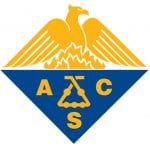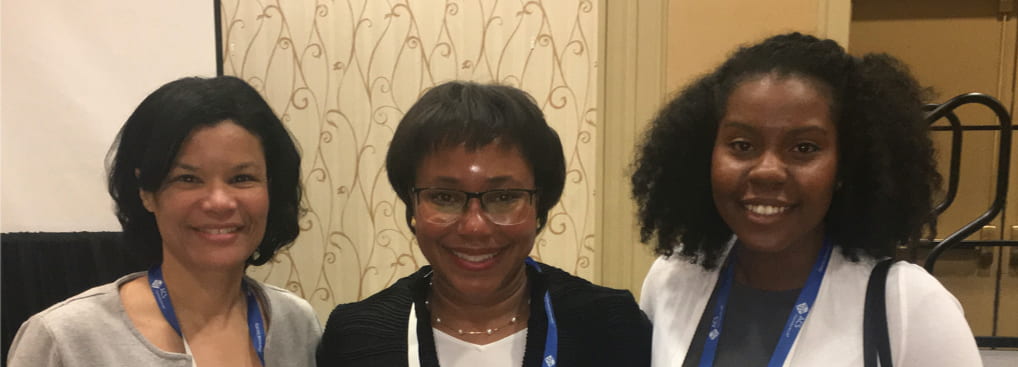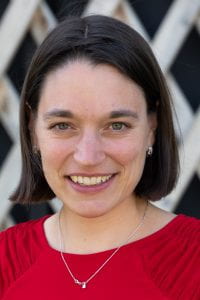 CHARM & PIRE Seminar
CHARM & PIRE Seminar
“Bioinspired processing of soft materials”
Prof. Esther Amstad, Associate Professor
Soft Materials Laboratory
November 17, 2021 at 10:00 AM EST
Registration is required.
Confirmation & seminar link will be sent to the email provided at registration.
Click HERE to view flyer.

‘Soft robots’ researcher awarded NSF CAREER award
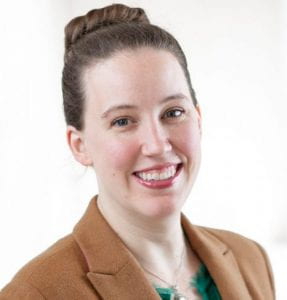
Professor Kathryn (Kati) Daltorio has dedicated most of her time at Case Western Reserve University to developing more responsive “soft robots.” Now, she has a National Science Foundation (NSF) CAREER Award specifically supporting that work. Daltorio is among several Case School of Engineering faculty members to receive this prestigious grant this year. Daltorio, an assistant professor in mechanical and aerospace engineering, said the five-year, $600,000 NSF CAREER award will allow her to take the next step in bridging a gap between the design and function of biological creatures and manufactured robots.
“When you’re designing a robot, you want very reliable, precise sensors, and you know what each one is going to do,” she said. “But animals aren’t that way; they are covered with what amount to cheap and undesirable sensors—at least in the mind of the engineer.” Ref: Case Daily
Recent seminars that have taken place within the Bio-inspired PIRE community include:

Julius Korley, PhD, MBA, University of Delaware, June 14
Dr. Korley is the Director of Entrepreneurship and Strategic Partnerships for the College of Engineering. He spoke on Entrepreneurship, Building your Network and Finding your Career Path.
 Nico Bruns, PhD, University of Strathclyde, June 2
Nico Bruns, PhD, University of Strathclyde, June 2
“Bio-inspired amphiphilic Polymer Conetworks and block copolymer nanoreactors.” This seminar was co-sponsored by PIRE Bio-inspired Materials & Systems, UD Center for Research in Soft Matter & Polymers (CRiSP), and the Center for Hybrid Active and Responsive Systems (CHARM).

Jen Heemstra, PhD, Emory University, May 14
“Bilingual Peptide Nucleic Acids: Encoding the Languages of Nucleic Acids and Proteins in a Single Self-assembling Biopolymer,” and “Self-care is not the Enemy of Performance.” These talks were co-sponsored by PIRE Bio-inspired Materials and Systems and the UD Center for Research in Soft Matter & Polymers (CRISP).
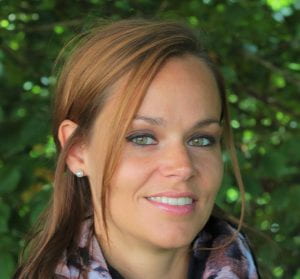
Celine Calvino, PhD, University of Freiburg, May 3
Dr. Calvino is Junior Group Leader and Principal Investigator at the University of Freiburg.
“My Scientific Journey in Three Words: Timing, Planning, Emotions.”
ACS Presentations
The American Chemical Society’s (ACS) Virtual Spring Meeting 2021 was held in April. The meeting featured nearly 9,000 presentations on a wide range of science topics. Our NSF PIRE: Bio-inspired Materials and Systems was represented by the following speakers:
Bio-inspired amphiphilic polymer conetworks
Prof. Nico Bruns, Presenter, with Sara Velasquez, Sebastian Ulrich, Clement Mugemana, Daseul Jang, Luciano Boesel, Prof. LaShanda Korley
Lessons from pine cones: structural hierarchy and programmable actuation in bilayer systems
Prof. LaShanda Korley, Presenter, with Symone Alexander, Francis Klincewicz, Jessica Thomas, Chase Thompson, Sofia Alfieri
Characterizing the effect of poly(β-benzyl-aspartate) peptide on the mechanical properties of bio-inspired amphiphilic polymer conetworks
Sara Velasquez, Presenter, with Daseul Jang, Prof. LaShanda Korley, Prof. Nico Bruns
Tuning shape memory response in polymer-peptide hybrids
Daseul Jang, Presenter, with Chase Thompson, Sourav /Chatterjee, Prof. LaShanda Korley
From CE&N: Thomas H. Epps III and LaShanda Korley have teamed up to envision a more sustainable plastics industry
“Thomas H. Epps III and LaShanda Korley can’t seem to escape each other’s gravity. The two polymer scientists first met at a conference more than 2 decades ago, as students. Soon after, they each emerged as rising stars in the field of soft matter.” – Ashley Smart, Special to CE&N
The duo have teamed up to develop strategies to upcycle plastic waste through the Center for Plastics Innovation, funded by a grant from the DOE. Further, they direct the Center for Research in Soft Matter and Polymers. Finally, they lead the Center for Hybrid, Active and Responsive Materials, a Materials Research Science and Engineering Center (MRSEC), one of nineteen such centers recently funded by the National Science Foundation.
Read more here: February 22, 2021 issue of C&EN, Volume 99, Issue 6
LaShanda Korley Featured in Stories from the National Nanotechnology Initiative
In this episode of Stories from the NNI, Lisa Friedersdorf, Director of the National Nanotechnology Coordination Office, speaks with Professor LaShanda Korley of University of Delaware about her work on bio-inspired nanotechnology and how it brings together researchers from all over the country and all over the world.

A Legacy of Excellence – How one researcher can inspire generations of innovative scientific minds
From left: Dr. LaShanda Korley, Dr. Paula Hammond, and Dr. Symone Alexander
“In science, there are few professional relationships more profoundly influential than the one between advisor and student. When NSF invests in a researcher’s work, it also supports the graduate students and post-docs who help their advisor produce results, while training to become researchers themselves. This access to cutting edge science and quality mentoring can be especially important for students who belong to groups under-represented in science. One example of how a lifetime of NSF funding can be leveraged to produce a “family tree” of scientific excellence can be found in the career of Dr. Paula T. Hammond.”
This News Update profiling Dr. Hammond and the scientists whose careers she has influenced, such as Prof. LaShanda Korley, was published by the National Science Foundation, February 3, 2021.
To read the entire story, click this link.


Professor LaShanda Korley recently participated in the NSF Bioeconomy Distinguished Lecture Series. In her address she covered the many research, education, and outreach activities that are part of our program, the NSF PIRE: Bio-inspired Materials and Systems.

Bio-inspired PIRE Seed Grant Program
The goal of the recently announced Seed Grant Program is to support collaborative research that is innovative and complementary to the established PIRE research thrusts. The research pursued through this program is expected to enhance the current thrust area research and to provide impetus for future funding.
2020-2021 Seed Grant Recipients

Structure and Response of Peptide-Polymer + CNC Hybrid Materials
Mike Hore, Thrust 1
Case Western Reserve University

Dynamic and Functional Fibers Inspired by the ECM
Xinqiao Jia, Thrust 4
University of Delaware

Dynamic virus crystals and hydrogels
Nicole Steinmetz, Thrust 4
University of California San Diego

Bio-inspired Materials and Systems Annual Meeting
Participants from across our PIRE site met on Friday, October 2, for our Annual Meeting. Even though we were not able to meet in person this year, we were able to discuss research updates and directions, and to plan for educational and outreach activities. We look forward to getting together in person soon.

Recently published
Congratulations to Livius Muff at the Adolphe Merkle Institute for his recently published article: Exploiting phase transitions in polymer bilayer actuators
https://doi.org/10.1002/aisy.202000177
Muff, Livius; Weder, Christoph, Advanced Intelligence Systems, 2020, 2000177

Expandable foam for 3-D printing large objects
“David Wirth, Jonathan Pokorski and colleagues at the University of California, San Diego wanted to develop an expandable resin that could be used to print large objects with an inexpensive, commercially available 3-D printer.”
Their goal was to overcome the limitations of 3-D printing, “Printed objects must be smaller than the machine making them. Huge machines are impractical for printing large parts because they take up too much space and require excessive time to print. Now, a new material reported in ACS Applied Materials & Interfaces can be used to 3-D print small objects that expand upon heating. The foam could find applications in architecture, aerospace and biomedicine.”
Their work was highlighted in ACS Physics News. Follow this link for more information .
More information: David M. Wirth et al, Highly Expandable Foam for Lithographic 3D Printing, ACS Applied Materials & Interfaces (2020). DOI: 10.1021/acsami.0c02683
California biotechnology company signs license option with CWRU, Dartmouth College
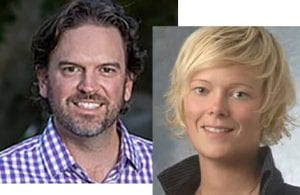
Mosaic ImmunoEngineering Inc. has recently signed a two-year option agreement to advance a novel immunotherapy to treat cancer and infectious diseases. This technology was invented by Nicole Steinmetz and Jon Pokorski (both professors at the University of California – San Diego) during their tenure at Case Western Reserve University, in collaboration with Professor Steven Fiering at Dartmouth Geisel School of Medicine.
The researchers have shown that plant-derived, engineered VLP-based nanotechnologies stimulate a potent anti-tumor immune response in mouse models of metastatic melanoma, ovarian cancer, colon cancer, brain cancer and breast cancer, including companion dogs with metastatic melanoma.
The technology, supported by numerous scientific publications and grant funding, has broad potential to treat many types of cancer and has direct application as part of a vaccine platform, which has generated promising data in cancer and infectious diseases — including COVID-19 — through research funded by the National Science Foundation.

Taking the next step in biorobotics
 Roboticist Roger Quinn and neurobiologist Hillel Chiel, a pair of longtime collaborators and biorobotic pioneers at Case Western Reserve University will lead a five-year, $8 million National Science Foundation (NSF) project to further explore the challenges faced by scientists in making more lifelike and responsive robots. The project is funded under the NSF’s Next Generation Networks for Neuroscience, or NeuroNex, as part of a $50 million endeavor that enlists 70 researchers from four countries to “investigate aspects of how brains work and interact with the environment around them,” an NSF news release said.
Roboticist Roger Quinn and neurobiologist Hillel Chiel, a pair of longtime collaborators and biorobotic pioneers at Case Western Reserve University will lead a five-year, $8 million National Science Foundation (NSF) project to further explore the challenges faced by scientists in making more lifelike and responsive robots. The project is funded under the NSF’s Next Generation Networks for Neuroscience, or NeuroNex, as part of a $50 million endeavor that enlists 70 researchers from four countries to “investigate aspects of how brains work and interact with the environment around them,” an NSF news release said.
The Case Western Reserve project, “NeuroNex: Communication, Coordination, and Control in Neuromechanical Systems (C3NS),” will examine how the nervous system in animals across a range of sizes coordinates and controls interactions with the environment.
 Most roboticists try to solve problems with optimization, or with basic design solutions,” Quinn said. “But what I’ve wanted to know is: ‘How do animals solve these problems?’ It’s a different way of approaching the problem and there’s an animal that has solved just about every engineering problem ever.”
Most roboticists try to solve problems with optimization, or with basic design solutions,” Quinn said. “But what I’ve wanted to know is: ‘How do animals solve these problems?’ It’s a different way of approaching the problem and there’s an animal that has solved just about every engineering problem ever.”
Chiel added: “People have been promising lifelike robots for decades and one of the reasons that we’re not really there yet is really just the complexity of the world around us. We are focused on creating autonomous devices capable of functioning in the real world, instead of redesigning the environment around them to allow them to move about.”
Click here to learn more about this program
U.S. Army commits up to $11 million for polymer research
 Case Western Reserve University researchers led by Gary Wnek, teamed up with the U.S. Army and a trio of industry partners to further their signature work in manufacturing approaches for lightweight and high-performance polymeric materials.
Case Western Reserve University researchers led by Gary Wnek, teamed up with the U.S. Army and a trio of industry partners to further their signature work in manufacturing approaches for lightweight and high-performance polymeric materials.
A new five-year agreement awards $5.4 million (with the potential for up to $11 million) to a team led by Case Western Reserve, and includes a subcontract to PolymerPlus LLC, a Cleveland-based polymeric development company founded at the university in 2010, to lead production scale-up.
In the new project, Case Western Reserve researchers will experiment with new combinations of ultra-thin plastics and send them to PolymerPlus for larger-scale processing, said Gary Wnek, who is also chairman of the Macromolecular Science and Engineering Department in the Case School of Engineering.
“What we’re looking to do is use our process to combine low- to mid-cost plastics—things like milk jugs and trash bags at a cost of about $3 a pound—to create a strong, flexible material equal to things like Super Kevlar, which are about $100 a pound,” said company President Mike Ponting, a Case Western Reserve alumnus. He said that the Army has “seen some of the initial samples and technology, but now they want to see how far we can take this.”
For more information, please follow this link.
New Center for Hybrid, Active, and Responsive Materials at the University of Delaware to be Co-directed by Professor LaShanda Korley

A new NSF Materials Research and Science and Engineering Center at the University of Delaware led by Professor Thomas H. Epps, III, and co-directed by Professor LaShanda Korley, will advance research to transform the way materials are made.
The UD Center for Hybrid, Active, and Responsive Materials (UD CHARM) will drive fundamental materials science research with the potential to enable critical innovations in biomedicine, security, sensing and more.
““We congratulate Professors Thomas Epps and LaShanda Korley for leading this transformational effort,” said University of Delaware President Dennis Assanis. “The new Center for Hybrid, Active, and Responsive Materials at UD will expand the boundaries of science and engineering and spearhead the materials revolution that will help create the future economy.
To learn more about this program, please click this link.

Professor LaShanda Korley to lead new Center for Plastics Innovation

The Center for Plastics Innovation (CPI) is one of six new Energy Frontier Research Centers (EFRCs) established across the U.S. to accelerate scientific breakthroughs in critical areas.
For more information about this program please click this link.
Professor Jon Pokorski is part of the leadership team for a newly funded NSF MRSEC at the University of California – San Diego
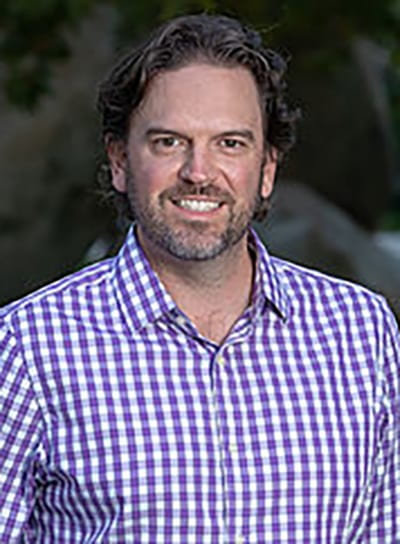 Materials Research Science and Engineering Centers (MRSEC) provide research and facilities funding for the institutions selected and also provide for educational opportunities aimed at expanding the field of STEM scientists. Research in this new MRSEC will focus on emerging approaches to build new materials aimed at improving human lives.
Materials Research Science and Engineering Centers (MRSEC) provide research and facilities funding for the institutions selected and also provide for educational opportunities aimed at expanding the field of STEM scientists. Research in this new MRSEC will focus on emerging approaches to build new materials aimed at improving human lives.
Read more about the program here.

Promotions
 Congratulations to Professor LaShanda Korley, who has been promoted and now holds the title, Distinguished Professor in the Department of Materials Science and Engineering and the Department of Chemical and Biomedical Engineering at the University of Delaware.
Congratulations to Professor LaShanda Korley, who has been promoted and now holds the title, Distinguished Professor in the Department of Materials Science and Engineering and the Department of Chemical and Biomedical Engineering at the University of Delaware.

Congratulations to Professor Michael Hore, who has been promoted to Associate Professor in the Department of Macromolecular Science and Engineering at Case Western Reserve University.

Professor LaShanda Korley named Fellow of American Institute of Medical and Biological Engineering
“LaShanda Korley’s lab at the University of Delaware has an unofficial motto: The Korley Lab – where unicorns are real. The fanciful motto represents an undeniable truth. By creating new materials inspired by nature for applications in healthcare, sensing, soft robotics and more, Korley is pushing the boundaries of what materials scientists and engineers previously thought possible.
For outstanding contributions to bio-inspired materials design and manufacturing, Korley, Distinguished Associate Professor of Materials Science and Engineering and Chemical and Biomolecular Engineering at the University of Delaware, has been named to the College of Fellows of the American Institute for Medical and Biological Engineering (AIMBE).”
Bio-inspired Materials & Systems – 2020 MLK Discovery Day
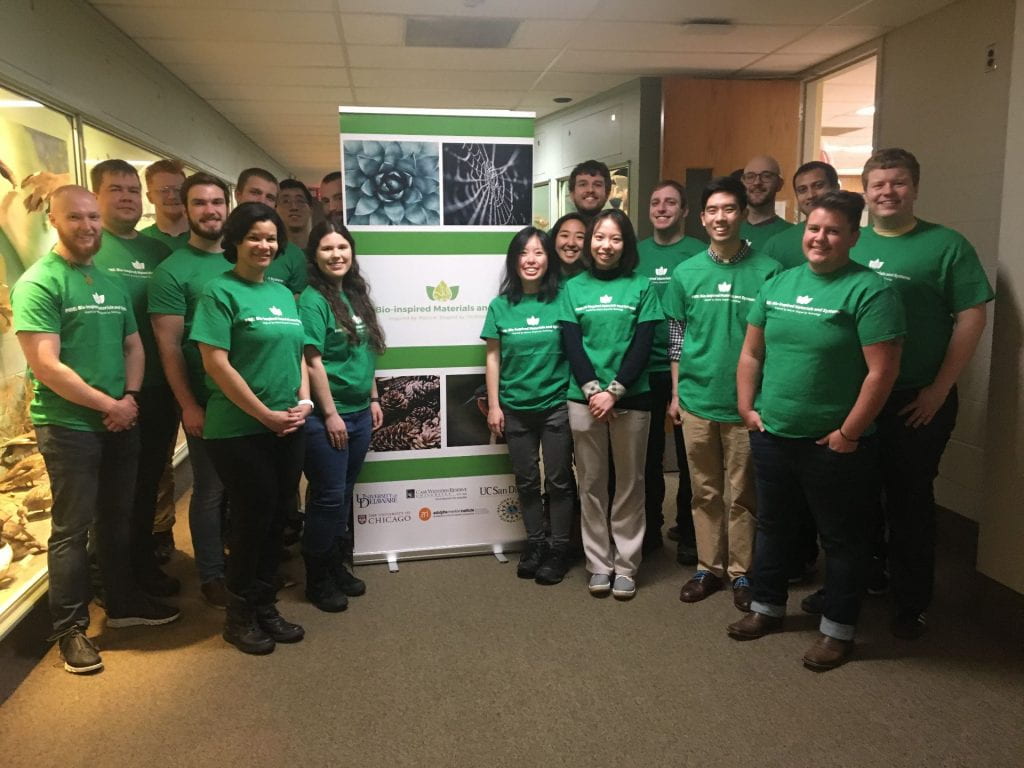
Once again the graduate students and faculty members from all across the Bio-inspired PIRE program presented demonstrations on polymers, biomimicry and robotics at Discovery Day at the Cleveland Museum of Natural History on Martin Luther King, Jr. Day. On this day museum admittance is free and scores of parents and children, and adult visitors flocked to the museum to see exhibits, talk with curators and participate in hands on demonstrations such as those offered by the PIRE graduate students.


LaShanda Korley Recognized for Research
LaShanda Korley, Distinguished Associate Professor of Materials Science and Engineering and Chemical and Biomolecular Engineering at the University of Delaware, has received the 2019 Lloyd N. Ferguson Young Scientist Award for Excellence in Research from the National Organization for the Professional Advancement of Black Chemists and Chemical Engineers (NOBCChE).
The award is named in honor and memory of Dr. Lloyd Noel Ferguson, a chemist and chemistry professor and co-founder of NOBCChe.
Korley is an international leader in the study of soft matter, polymers, and bio-inspired materials. She the principal investigator of PIRE: Bio-Inspired Materials and Systems, a five-year, $5.5 million grant from the National Science Foundation.
International Visits
 Stephen Schrettl, Group Leader in the Polymer Materials and Chemistry Group at the Adolphe Merkle Institute of the University of Fribourg paid a visit to Bio-inspired PIRE students and faculty at the University of Chicago and at the University of Delaware in November, 2019. Prof. Schrettl’s topic was Tunable and Responsive Supramolecular Polymer Materials.
Stephen Schrettl, Group Leader in the Polymer Materials and Chemistry Group at the Adolphe Merkle Institute of the University of Fribourg paid a visit to Bio-inspired PIRE students and faculty at the University of Chicago and at the University of Delaware in November, 2019. Prof. Schrettl’s topic was Tunable and Responsive Supramolecular Polymer Materials.
Congratulations
 Congratulations to Molly Sun (University of Chicago) for winning best oral presentation at the ACS IL-IA Undergraduate Research Conference on October 26 in Davenport, Iowa. Molly presented the summer research she carried o
Congratulations to Molly Sun (University of Chicago) for winning best oral presentation at the ACS IL-IA Undergraduate Research Conference on October 26 in Davenport, Iowa. Molly presented the summer research she carried o
ut in the Amstad lab at EPFL on bio-inspired hydrogels when she spent the summer in Switzerland.

PIRE Swiss Colleagues at Conference in Monte Verita, Switzerland
Prof. Ullrich Steiner, Adolphe Merkle Institute – University of Fribourg, gave the opening lecture at this international conference that focused on the fabrication and characterization of materials made by nature.

Graduate students Baptiste Monney (top) and Livius Muff (bottom) were presenters at the conference.

Prof. Michael Hore at the University of Delaware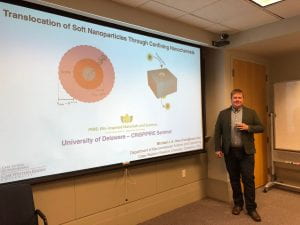
Prof. Mike Hore (CWRU) gave a CRiSP-PIRE seminar on Translocation of Soft Nanoparticles through Confining Nanochannels at the University of Delaware on October 14.
Prof. Korley’s research highlighted in Materials World
 Prof. LaShanda Korley was interviewed for the Institute of Materials, Minerals and Mining’s journal Materials World on her group’s research on shape memory and soft robotics inspired by the jaw of the bristle worm.
Prof. LaShanda Korley was interviewed for the Institute of Materials, Minerals and Mining’s journal Materials World on her group’s research on shape memory and soft robotics inspired by the jaw of the bristle worm.
The paper, Gradient supramolecular interactions and tunable mechanics in polychaete jaw inspired semi-interpenetrating networks published in European Polymer Journal can be read here: doi: 10.1016/j.eurpolmj.2019.04.015
Click here to read the article
Bio-inspired PIRE at MRS Brazil
The Brazilian Materials Research Society (B-MRS) held its 2019 meeting on September 22-26, 2019, in Balneario Camboriu-SC. This meeting is dedicated to recent advances and perspectives in materials science and technology and attracts world-wide attendance.
Graduate student, Sara Roldan-Velasquez and Prof. Nico Bruns were the primary co-organizers of the Bio-inspired Materials Symposium at this conference.
Overall, Bio-inspired Materials and Systems PIRE was well represented at the meeting with Profs. LaShanda Korley (PI), Jon Pokorski (University of California-San Diego) and Nico Bruns (University of Strathclyde), giving invited lectures and Sara Roldan-Velasquez, graduate student at the University of Strathclyde, who was also a presenter.

Pictured L to R: LaShanda Korley, PI; Jon Pokorski, UCSD; Nico Bruns, University of Strathclyde; Sara Roldan-Velasquez, Graduate Student, University of Strathclyde (front)
Bio-inspired PIRE Annual Meeting at the University of California – San Diego – August 2019
On August 23, Bio-inspired Materials and Systems held its second annual meeting on the campus of UCSD. Above, PI Prof. LaShanda Korley chats with meeting host Prof. Jon Pokorski, Co-PI. Also pictured is graduate student Akash Vaidya, University of Delaware. Representatives from all of the PIRE sites were present at this productive meeting where research updates were shared, student research was showcased, and strategies for the future were planned.


Congratulations to Akhil Kandhari recipient of the 2019 Bio-inspired PIRE Outstanding Student Award

Akhil Kandhari is a senior graduate student working in Prof. Roger Quinn’s laboratory on Soft Robotics inspired by Worm Locomotion. Akhil has participated in the communications training program offered through the PIRE grant at the Chicago Museum of Science & Industry. He says it has enhanced his skills in talking about science with people of all backgrounds including children who attend the Martin Luther King Jr Discovery Day demonstrations at the Cleveland Museum of Natural History. Akhil is an enthusiastic team member and has traveled several times to the University of Chicago to work with his PIRE research colleagues there. In addition, Akhil has mentored a Bio-inspired Envoy for the past 2 years. Envoys are promising high school students from challenged school systems who work with graduate students in their labs. Akhil received his award at the Bio-inspired PIRE Annual Meeting in August.
PIRE Faculty Member, Roger Quinn, Honored for Research Contributions
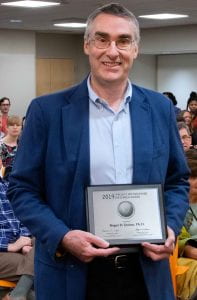 Congratulations to Roger Quinn, Arthur P. Armington Professor of Engineering at Case Western Reserve University, on receiving a 2019 Distinguished Faculty Research Award at the Annual Research ShowCASE. More information on the award and the event can be found here.
Congratulations to Roger Quinn, Arthur P. Armington Professor of Engineering at Case Western Reserve University, on receiving a 2019 Distinguished Faculty Research Award at the Annual Research ShowCASE. More information on the award and the event can be found here.

Bio-inspired PIRE’s Martin Luther King Jr. Day Event in Cleveland
PIRE faculty and students participated in the annual Martin Luther King, Jr. Day event on January 21, 2019 at the Cleveland Museum of Natural History. This free day at the museum attracts families from all over the Cleveland area and allows them to participate in hands-on, science activities throughout the day. The PIRE group focused on bio-inspired activities and demonstrations and engaged an enthusiastic audience. See more photos here.

